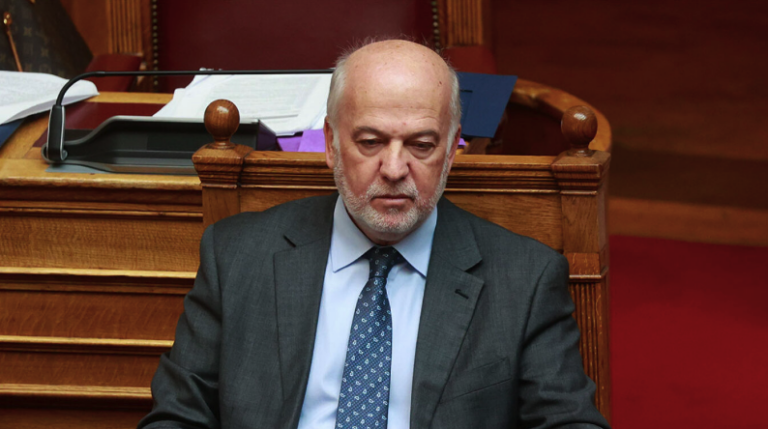The debate on the reform of the Penal Code, which is being promoted by Justice Minister George Florides and Deputy Minister Yannis Bougas to tighten sentences and speed up the issuing of court decisions, began with tension and political controversy in the plenary session of the Parliament.
Presenting the regulations, Florides stressed that the draft law serves the rights of victims, noting that the criminal framework set by the SYRIZA government in 2019 led to impunity for serious crime.
On the other hand, the opposition calls the bill “victim-centric” and argued that petty criminals will be jailed “for nothing”.
“We hear ironic approaches from the opposition that allegedly the bill is victim-centric.
But who will put themselves in the shoes of the mother who waits for her child to come home at night and gets a phone call to say that a drunk ran a red light and killed him?
Who would be in the shoes of the victim who is beaten and vilified and the perpetrator gets nothing under the current system? Who is in the place of the owner who sees his house ransacked?”
Florides added “So when we talk about the rights of victims we are talking about the rights of the society itself that does not want its children to be robbed and raped.
To rape their children and with the current framework, whoever does it, no matter what sentence he or she suffers, will soon be out”.
“This bill finally attempts to send a message to all those who break the law that from now on the risk of going to jail is serious and that they will serve their sentence.
The whole direction and philosophy of the bill is the opposite of what SYRIZA legislated in 2019 just before Parliament closed,” the minister said elsewhere.
At the same time, Florides made strong accusations against members of the legislative committee that drafted the Criminal Codes of the SYRIZA ANEL period, claiming that they legislated to favour the then clients of their law firms.
It should be noted that the debate on the draft law ends today while the majority MPs voted in favour in principle and the opposition parties voted against.
It should be noted that some of the main changes introduced by the draft law are as follows:
Sentencing of misdemeanours
– Suspension of sentences for misdemeanours is changed from a rule to an exception. It will be available for prison sentences of up to one year when irrevocable previous convictions do not exceed one year.
– For prison sentences of up to 2 years, priority will be given to serving sentences through the alternatives of community service or commutation of the sentence to cash or home detention with electronic supervision.
– For sentences of 2 to 3 years’ imprisonment, all or part of the sentence of 30 days to 6 months is served in a penitentiary establishment, at the discretion of the court.
– For sentences of more than 3 years’ imprisonment, all or part of the sentence, from 1/5 to 2/5 of the sentence, shall be served in a penitentiary establishment, at the discretion of the court.
Conditions for prosecution for felonies
– Increase of the maximum term of imprisonment for felonies from 15 to 20 years.
– Increase of the maximum term of imprisonment for multiple felonies to 25 years (from 20). Similarly for multiple misdemeanours to 10 years (from 8).
– Horizontal provision for ex officio prosecution for all felonies, irrespective of whoever is responsible for the protected legal interest.
– In order to enhance transparency, specific criminal liability of legal persons and legal entities is introduced in cases where they engage in bribery of public officials in order to obtain improper benefits. Fines of millions of euros are foreseen and the closure of such companies may be imposed by the competent courts.
Release of prisoners and reintroduction of judicial deportation
– Release (on parole) will be at the effective discretion of the judicial council, depending on the risk of the crime and the individual and social characteristics of the offender.
– Reintroduction of the security measure of judicial deportation for felonies after serving a prison sentence.
– Addressing crimes with serious social implications
– Increase the sentence and prohibit any form of suspension or commutation for the offence of forest arson.
Ask me anything
Explore related questions





